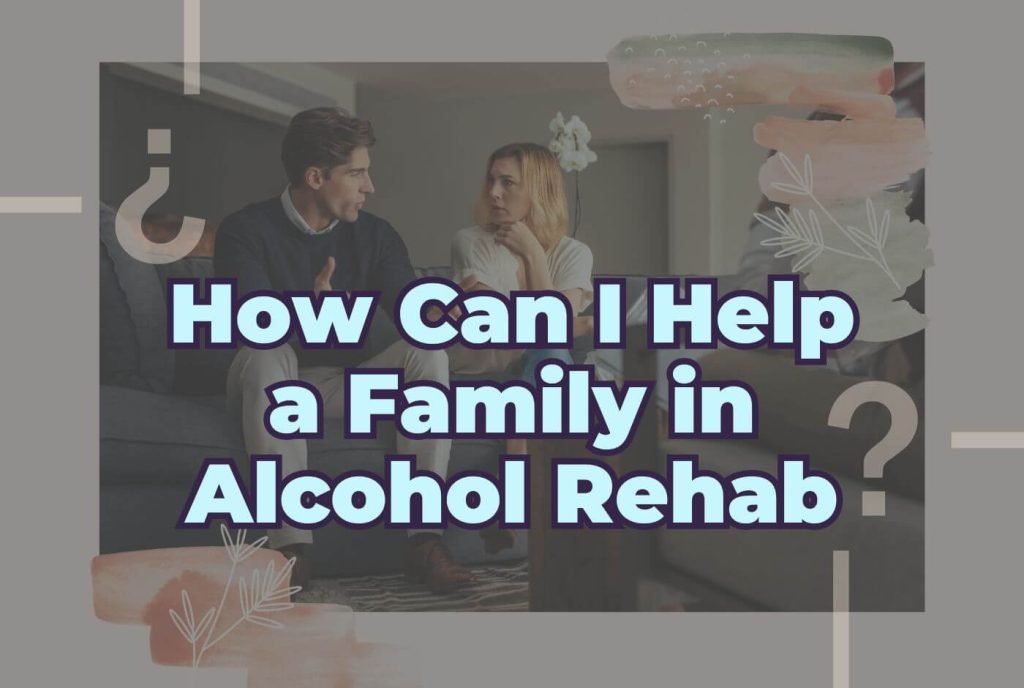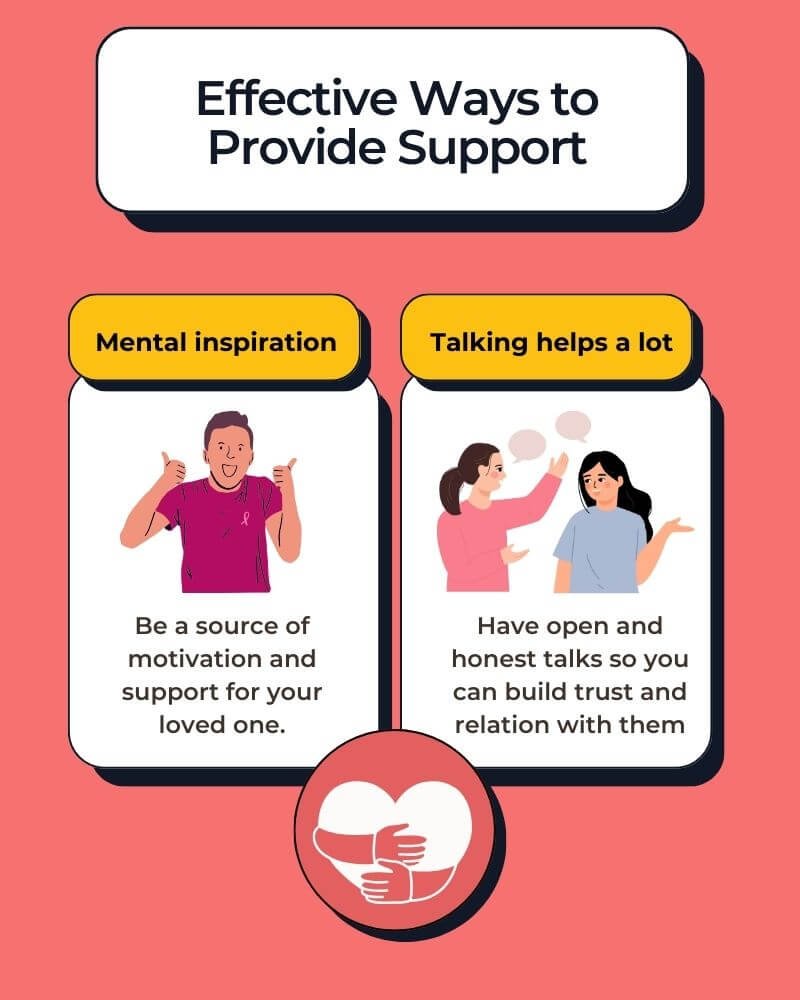It is never an easy choice when faced with the challenge of alcoholism treatment for a family member. According to the SAMHSA’s National Survey on Drug Use and Health, 29.5 million people aged 12 or older met DSM-5 criteria for an alcohol use disorder.
By going to rehab, family members can learn more about the problems their loved one is having, how to best help them, and take care of their own mental needs. This can help the family get along better and help the person who is dealing with alcoholism recover more effectively and for a longer period of time. In rehab, family members can also gain a better understanding of the recovery process and ways to support alcoholic loved ones. Learning about the triggers for alcohol use, how to communicate effectively, and strategies for creating a supportive environment can all contribute to the success of the individual in recovery. Additionally, rehab can provide resources for the family to seek their own counseling or support groups, helping them navigate the challenges of living with and supporting someone with alcoholism. Supporting a parent in rehab can be emotionally challenging, but it is also an opportunity for growth and healing within the family unit. It is important for family members to communicate openly and honestly with their loved one in rehab, and to also seek their own support when needed. By becoming educated about alcoholism and the recovery process, family members can not only offer better support to their loved one, but also strengthen their own relationships and emotional well-being.

Let’s deep dive into our blog to explore more about how you can help a family in rehab, how to support and make them realize that they are not alone in this fight!
Emotional Support for Family in Alcohol Rehab
My next-door neighbor, Mr. Jacob, is an alcohol rehab successor who faced a crucial time in rehab. His wife and daughter were not so supportive initially, but when they started attending group sessions, they were enlightened about the power of emotional support. Consider it a miracle or not, he successfully got out of rehab six months earlier!
Emotional support is the most powerful weapon to fight an alcohol addict. If your loved one is in rehab, don’t give up on him. Here are some supportive steps you can take for them-
Being Non-Judgmental and Understanding
In order to give your loved one the mental support they need, you should not judge their problems with alcohol. Instead, try to understand the problems they’re having without taking anything away from them. This makes a safe, non-confrontational space for people to talk freely.
Encouraging Open Communication
It is very important to encourage honest and open conversation. This builds trust and lets your family members talk about their worries, thoughts, and experiences with their addiction and recovery. Active listening and answers that don’t judge help make the space supportive.
Offering Empathy and Compassion

Your loved one will know you care about their well-being if you show empathy and kindness. Understand and share their emotions and experiences, which can help them feel better and keep them going as they work to get better.
Effective Ways to Provide Support
The whole family is affected when one person in the family has a problem with alcohol use. Your loved one’s drinking hurts the family dynamic, including your mental and physical health as well as your funds.
My father was an alcoholic. I have seen my family through this crucial time. My mother was mentally broken, but at the same time, she had to support him. Supporting can be the most effective and reliable way to help your loved one get out of alcohol addiction.
In my experience, there are two most effective ways to provide support to your close one-
Mental inspiration
Being a source of motivation and support for your loved one in alcohol rehab is part of providing mental inspiration. Help them stay focused on their recovery goals by reminding them of their skills and what they’ve done well in the past.
Your strong belief in their ability to beat addiction can help them a lot on their way to recovery.
Talking helps a lot
A simple but effective way to help someone in rehab is to have open and honest conversations with them. You can build trust and relationships with others by sharing your own experiences and listening to what they have to say without judging them.
It’s a way to be there for them during their healing and show that you care.
How to Help a Family in Alcohol Rehab?
As I spent 2 years in my adulthood fighting for my father’s alcohol addiction, I have had an immense struggle to cope with the situation. My mother and I were always there for my father to support and finally, he succeeded. I want to share my incredible journey with you.
To help a family in Alcohol rehab, these are the most important things you should keep in mind-
Be There for Your Loved One
Giving your family member mental support and reassurance is one of the most important things you can do to help them get better from drinking. Be there for them, show empathy, and listen to their worries. Make it safe for them to talk about their trip.
Educate Yourself about Alcohol Addiction
It is very important to understand what addiction is, how it works, and what kinds of treatments are available. Educating yourself gives you the tools you need to help your loved one and talk to them clearly.
Providing Practical Support
Helping them with things like getting to and from rehab, doing daily jobs, and making sure they have a stable place to live is very helpful for their recovery. My mother always encouraged my father in his daily deeds so that he never had to feel left out.
Setting Boundaries and Self-Care
It’s important to help others, but it’s also important to set healthy boundaries and put your own health first. Doing this will help you stay healthy and able to support your family member in rehab in a long-term way.
What to Do If a Loved One is Struggling with Alcohol Addiction
When someone you care about is struggling with alcoholism, it can be hard and upsetting for everyone involved. It’s important to go into the situation with knowledge, compassion, and a clear plan for how to help them.
Acknowledge the Problem
The first step is acknowledging that there is a problem. Sometimes the signs of alcoholism aren’t obvious, but if you’ve seen changes in their behavior, their health getting worse, or them being more secretive about how much they drink, you need to deal with the problem instead of ignoring it.
Talk to Your Loved One
Start a kind, non-confrontational talk with the person you care about. Talk about your worries and thoughts and show your love and support.
When my neighbor Jesse started noticing his brother’s increased alcohol consumption, he began to discuss it openly. To make it safe for him to talk about his problems, he talked about his fears, like missing family events and having problems at work.
Encourage Your Loved One to Get Help
A vital step is to encourage your loved one to get help. Offer to look into different treatment choices with them, go to their appointments with them, or put them in touch with support groups.
My sister-in-law, Mary, told her brother about the rehab center she found nearby and offered to go with him to the first appointment.
How to Find Alcohol Rehab for a Family Member
To find an alcohol rehab for a family member, the following steps can lead you to success:
- Start by Talking: Initiate an open and honest conversation with a family member about getting help for alcoholism. Encourage people to talk to each other freely to make the workplace more helpful and understanding.
- Do Your Research: Look into the different rehab choices, taking into account things like location, treatment methods, and customer reviews. Make sure that the center fits the needs and wants of your family members.
- Get Recommendations: Ask healthcare experts, support groups, or people who have been through alcohol rehab to give you advice. Their advice can help you find care centers that you can trust.
- Visit the Facility: Plan to visit possible rehab centers to get a feel for the atmosphere, staff, and treatment programs. This personal experience can help you make a smart choice.
- Make a Decision: Pick the rehab center that fits your family member’s wants and goals the best after doing a lot of research and thinking about it. Make sure it fits your income and any insurance you have.
People Also Asked
Can Parents go to Alcohol Rehab?
Yes, if necessary, parents are able to check themselves into alcohol treatment programs. The disease of addiction does not choose its victims, and as a result, everyone, including parents, should put their health and get sober first.
What gift to send to a loved one in Alcohol rehab?
Send encouraging gifts such as books, journals, or personal letters to those who are going through a tough time. Steer clear of things like alcohol that could set off your appetites.
Can I force a family member if the addiction is severe?
Yes, you can when it is out of control. Intervention and court action may be needed in some situations to protect a loved one and help them get better. To deal with severe addiction successfully, you need to talk to professionals and learn the laws in your area.
It’s not possible for addiction to go away or go into remission. Helping a loved one after rehab means giving them love and support for the rest of their lives. You can’t do your loved one’s healing work for them, but you can support them and help them stay away from things that set them off.
Contact a dedicated recovery provider today if it’s time for your loved one to go back to rehab or explore here if you want to choose the right alcohol rehab center.
- What to Pack for 30-Day Rehab? FREE Checklist - May 30, 2024
- Types of Outpatient Rehab: Difference One Should Know - March 28, 2024
- Truth Behind FMLA: Hidden Hurdles of Alcohol Rehab Leave - March 28, 2024